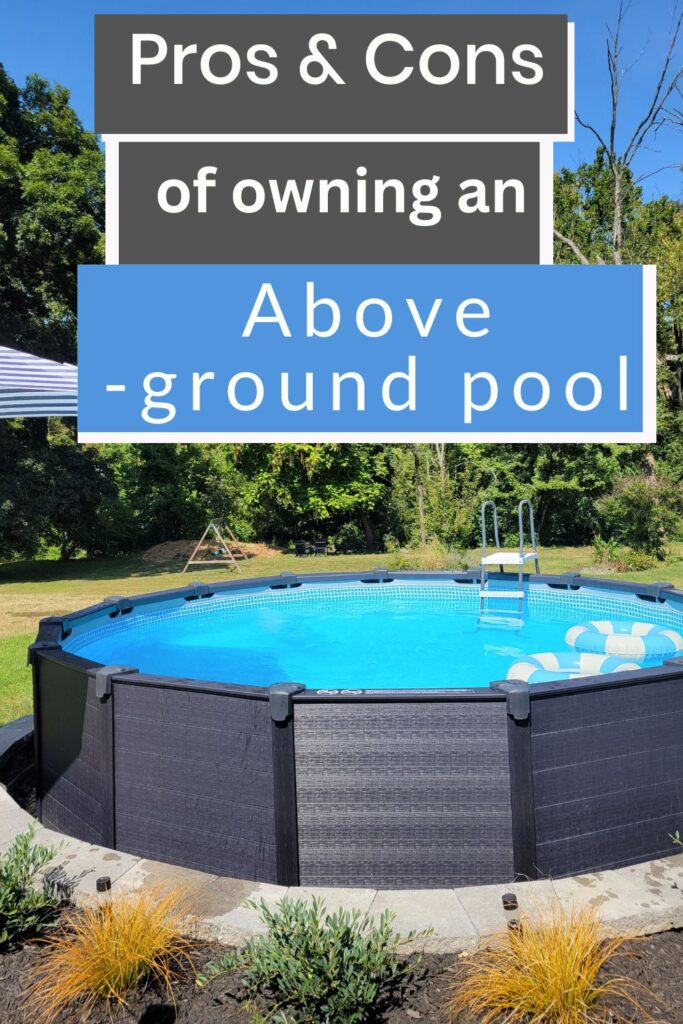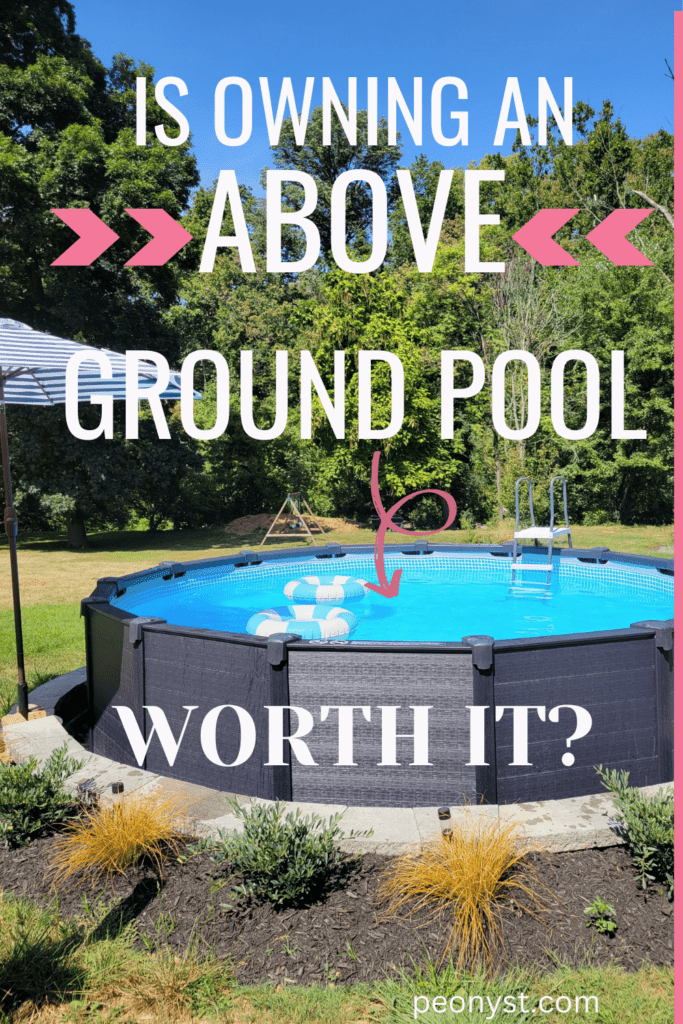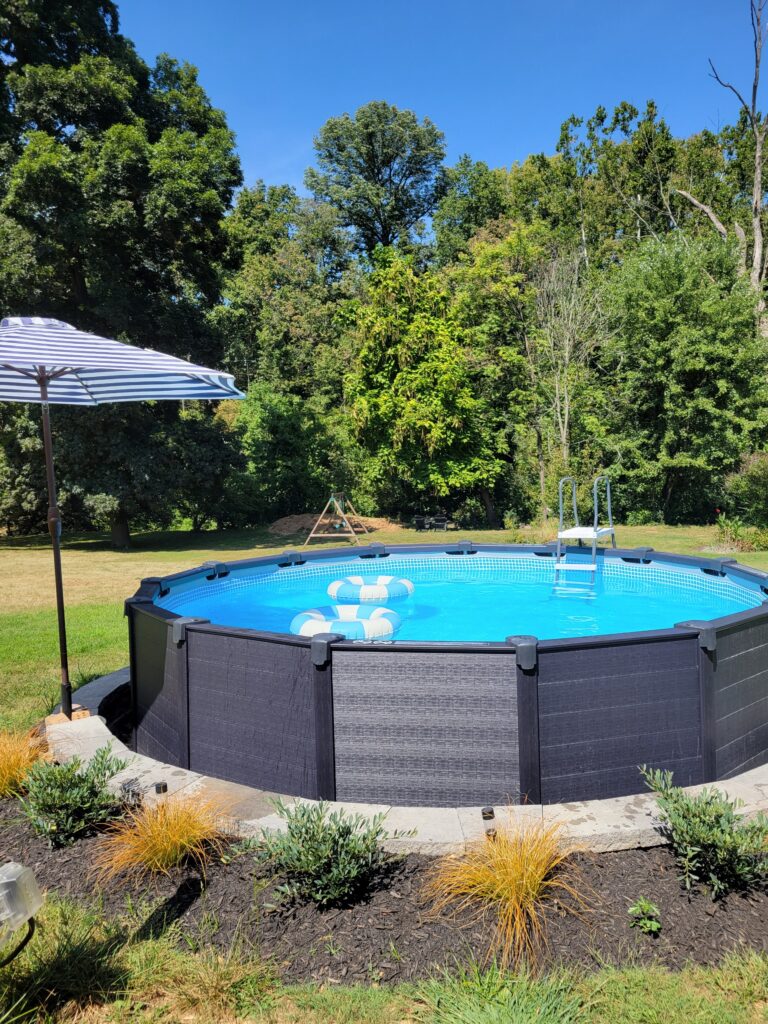Are you thinking about getting an Intex above-ground pool this summer? Do you want to know the advantages and disadvantages of owning a swimming pool? If you’re on the fence about whether or not you should own a pool, keep reading and I’ll share my experience in owning an above-ground pool.
For most people, summer is not complete without getting in the water. Whether going to the beach or swimming in the pool. People want to beat the heat by relaxing in the water.
We owned our Intex above-ground pool for two years now. Summer is more fun when you have a pool to cool off during the hot weather. My kids enjoy swimming in the summer with their friends. My eldest daughter likes to have a pool party on her birthday.
This is our first above-ground pool. And I learned so much from owning a pool for two years. Let’s dive into the pros of cons of owning an above-ground pool.
This page includes affiliate links – full disclosure.
The Pros Of An Above-Ground Pool
Beat the heat.
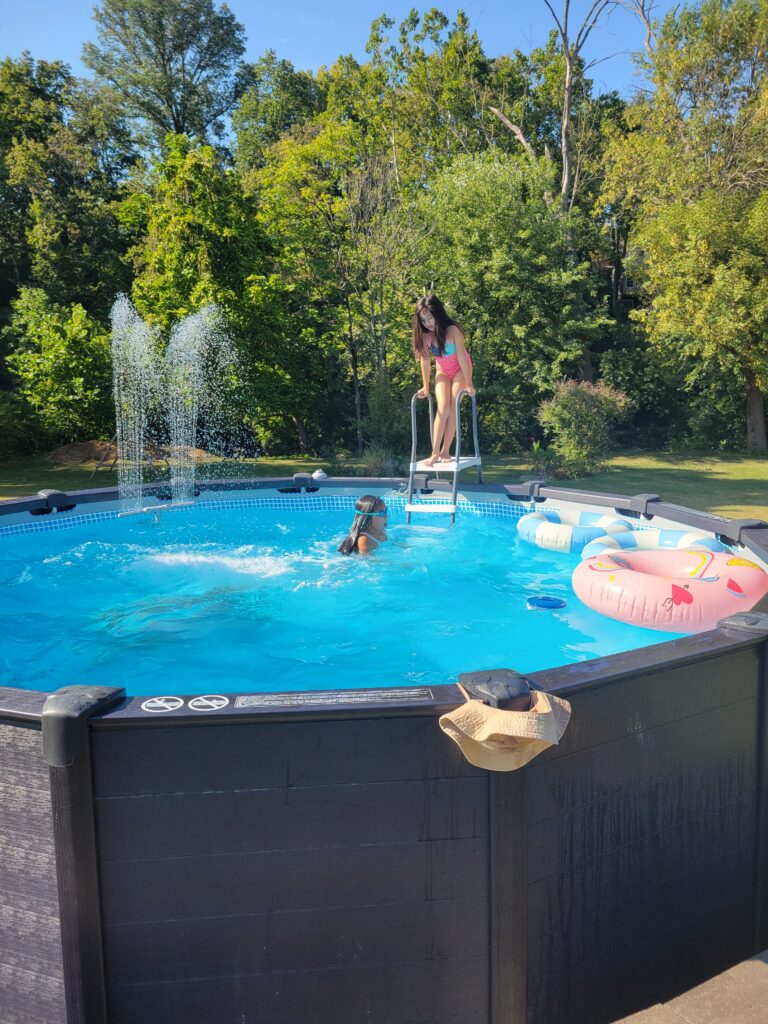
Let’s face it. Having a swimming pool in the summer is great. My kids enjoy the summer now than before because of the pool. I like to swim around the pool to get exercise. Swimming is a great way to lose weight if you don’t want to walk in the heat like me, lol.
Convenience and privacy.
Have you been to a public pool? I went to our local public pool years ago and had a bad experience. The pool was so crowded and it was so noisy. I did not enjoy it at all. We were contemplating between paying for a membership to a local pool or having a pool in our backyard, and we all agreed that we’d rather have our own pool. We want to be able to swim anytime and the convenience of not having to drive to go to the pool and pack our swimsuits.
More affordable than in-ground pools.
An above-ground pool is more affordable than an in-ground swimming pool. This is the reason why more people are owning an above-ground pool. Not only are the initial costs lower but maintenance expenses are lower too. From installation to ongoing upkeep, above-ground pools can offer significant savings for homeowners who want to enjoy the benefits of a pool without breaking the bank.
Easy to install.
Unlike in-ground pools, which require excavation and extensive construction, above-ground pools can be set up relatively quickly and with minimal disruption to your property. Many models are designed for straightforward DIY installation, meaning you can have your pool up and running in a few hours rather than weeks. Hubby and I installed the pool ourselves and it only took a few hours to set up.
It’s not permanent.
One of the lesser-known advantages of above-ground pools is their portability. Unlike in-ground pools, which are permanent fixtures, above-ground pools can be disassembled and relocated if needed. This flexibility can be particularly appealing for renters or homeowners who may want to change the layout of their backyard in the future. I like that it’s not permanent because if we decide to remove it, we can disassemble it ourselves.
Safety.
While no pool is entirely without risk, above-ground pools can offer added safety benefits compared to in-ground options. Their elevated design can make them less accessible to small children and pets, reducing the risk of accidental drowning. Additionally, many above-ground pool models come with built-in safety features such as ladders and locking gates.
The cons of owning an above-ground pool.
A lot of work.
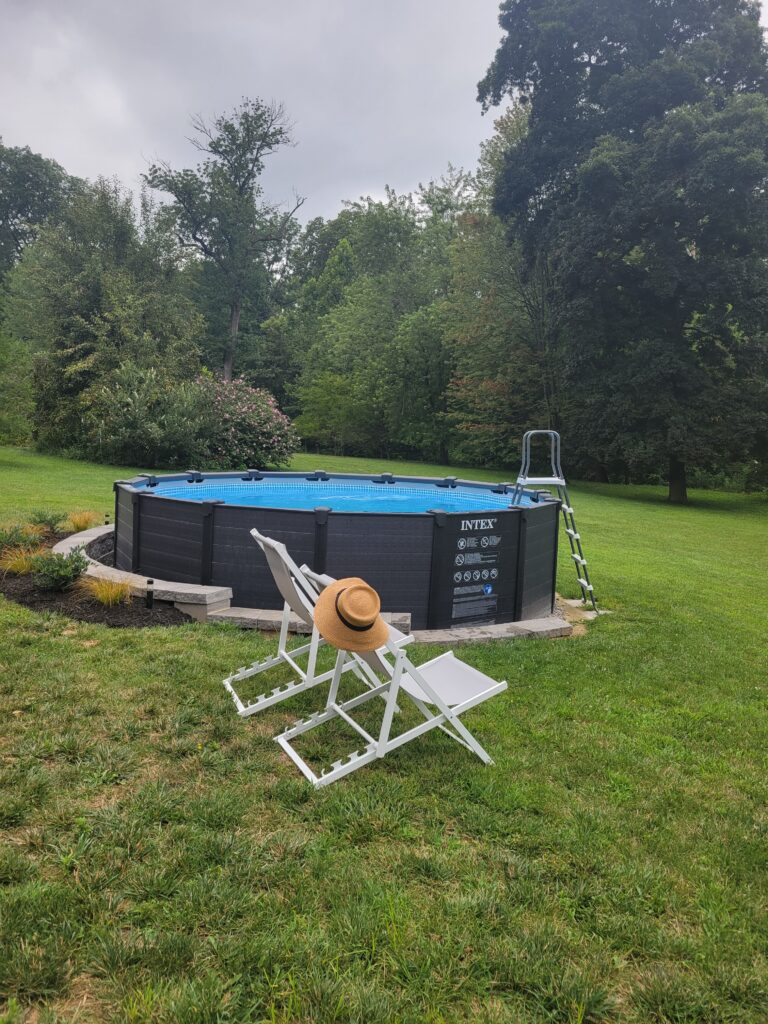
I did not realize how much work it would take to maintain a pool. I need to learn about pool chemistry and so on. I have to skim for leaves and bugs every morning to keep the pool clean. If you don’t have time to do this, you might have to rethink getting one. This applies to getting a house with an in-ground pool too.
Maintenance is expensive.
The cost of the chlorine tabs doubled in the last two years. When COVID hit, there was a shortage of chlorine and the price went up. Chlorine is essential to keep the pool clean and clear. Of course, you can also use saltwater, but I don’t have any experience in that area.
You need different chemicals to keep the chemistry balanced or you’ll run into algae problems. I wrote a post about things you need to maintain your pool here.
Limited size and depth.
Due to their design, above-ground pools are typically smaller and shallower than in-ground pools. While this may not be a problem for casual swimmers or families with young children, those who enjoy diving may find the limited size and depth restrictive.
Durability concerns.
While above-ground pools can be durable when properly maintained, they are generally more susceptible to damage than in-ground pools. Exposure to the elements, such as wind, rain, and sunlight, can take a toll on the structural integrity of the pool over time. Additionally, the materials used in above-ground pools are not as resilient as those used in in-ground construction.
Temperature regulation.
Unlike in-ground pools, which benefit from the insulating properties of the surrounding earth, above-ground pools can be more prone to temperature fluctuations. We don’t have a heater so I use this solar cover to retain heat during the summer. This is one of the reasons why we did not use the pool as often in spring because the water is too cold for swimming.
I hope you find this post helpful. Owning an above-ground pool ultimately depends on your preferences, budget, and lifestyle. By carefully weighing the pros and cons of owning a pool, you can make an informed choice that will bring you and your family years of enjoyment.
Jennabel
Other Posts You May Like:
Five Things You Must Know Before Installing An Above-ground Pool
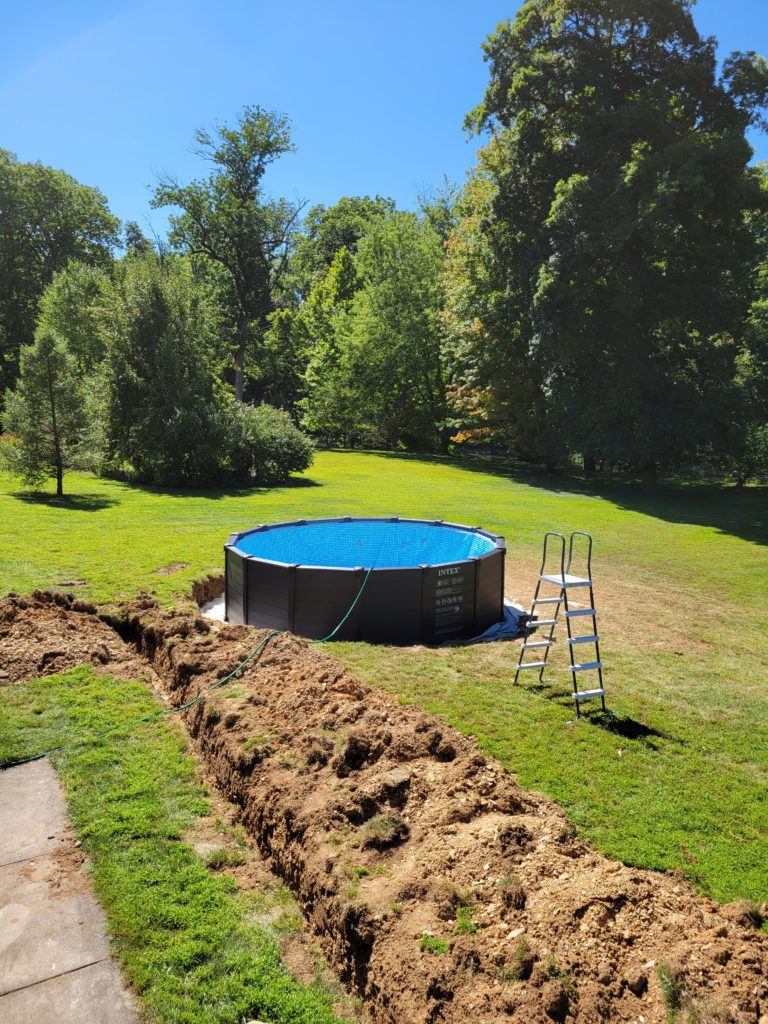
Intex Graphite Panel Above-Ground Pool Review
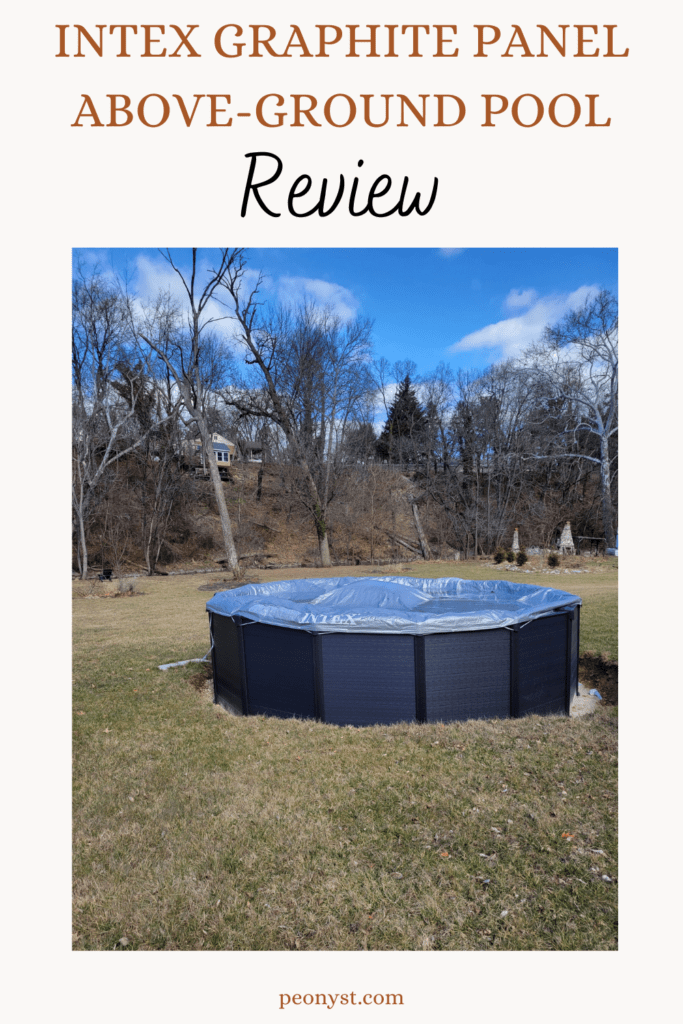
Pin for later:
